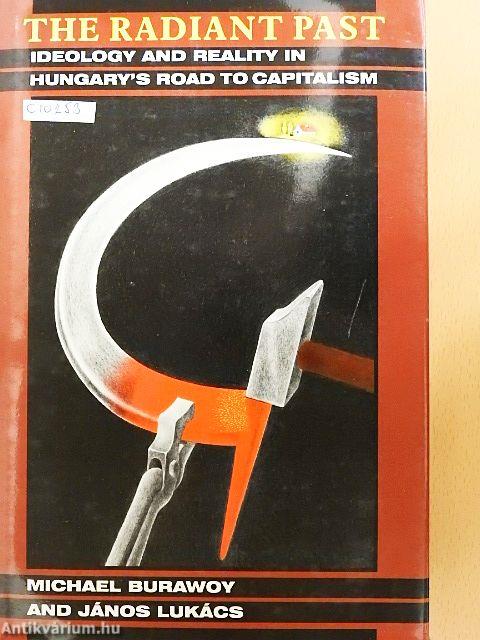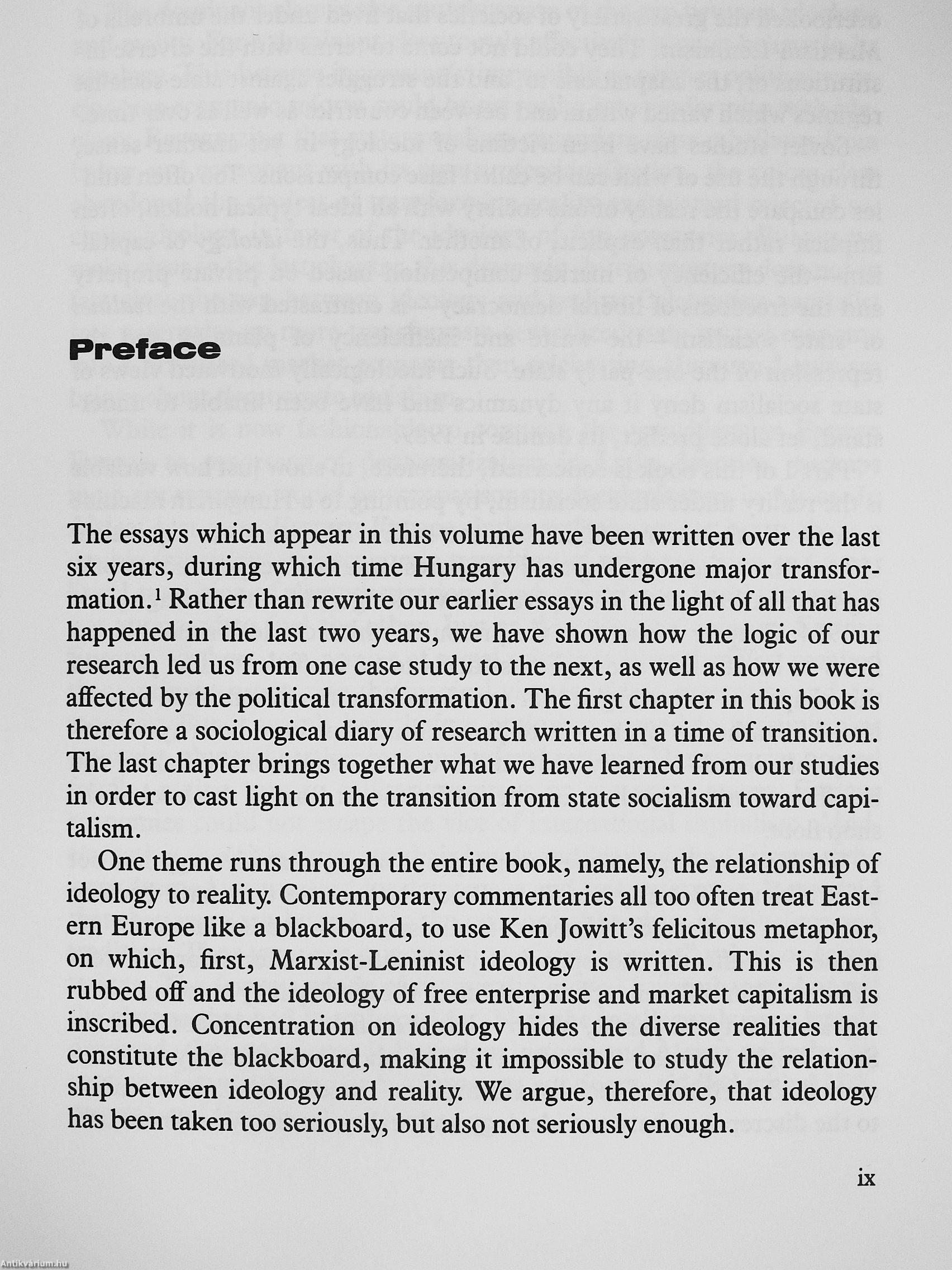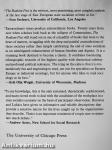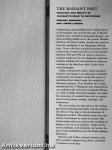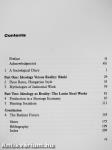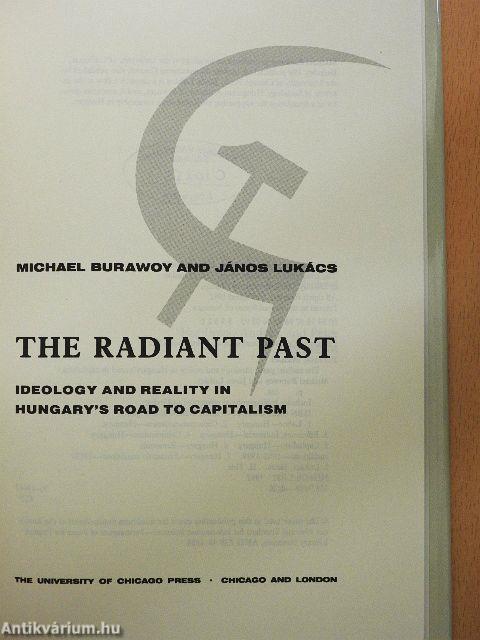1.103.822
kiadvánnyal nyújtjuk Magyarország legnagyobb antikvár könyv-kínálatát

VISSZA
A TETEJÉRE
JAVASLATOKÉszre-
vételek
The Radiant Past
Ideology and Reality in Hungary's Road to Capitalism
| Kiadó: | The University of Chicago Press |
|---|---|
| Kiadás helye: | Chicago-London |
| Kiadás éve: | |
| Kötés típusa: | Vászon |
| Oldalszám: | 215 oldal |
| Sorozatcím: | |
| Kötetszám: | |
| Nyelv: | Angol |
| Méret: | 24 cm x 16 cm |
| ISBN: | 0-226-08041-2 |
naponta értesítjük a beérkező friss
kiadványokról
naponta értesítjük a beérkező friss
kiadványokról
Előszó
TovábbFülszöveg
''The Radiant Past is the wittiest, most penetrating, most complete analysis of the last stage of East European state socialism written so far." —Ivan Szelenyi, University of California, Los Angeles
'Extraordinary times produce extraordinary books. Twenty years from now when scholars look back at the collapse of Communism, The Radiant Past will stand out as one of a handful of books that went to the heart of matters, struggling with the deep and painful contradictions of these societies rather than simply celebrating the end of state socialism as an unmitigated enhancement of human freedom and dignity. It is a stunning book destined to become a classic. It combines fascinating ethnographic research of the highest quality with theoretical subtlety and profound political relevance. The icing on the cake is that it is tremendously fun and engrossing to read, not just for specialists on Eastern Europe or industrial sociology, but for anyone who likes to read sociology at its best."... Tovább
Fülszöveg
''The Radiant Past is the wittiest, most penetrating, most complete analysis of the last stage of East European state socialism written so far." —Ivan Szelenyi, University of California, Los Angeles
'Extraordinary times produce extraordinary books. Twenty years from now when scholars look back at the collapse of Communism, The Radiant Past will stand out as one of a handful of books that went to the heart of matters, struggling with the deep and painful contradictions of these societies rather than simply celebrating the end of state socialism as an unmitigated enhancement of human freedom and dignity. It is a stunning book destined to become a classic. It combines fascinating ethnographic research of the highest quality with theoretical subtlety and profound political relevance. The icing on the cake is that it is tremendously fun and engrossing to read, not just for specialists on Eastern Europe or industrial sociology, but for anyone who likes to read sociology at its best."
—Erik Olin Wright, University of Wisconsin, Madison
To my knowledge, this is the only sustained, theoretically sophisticated, and many-tiered work to deal with the conditions of the workplace in a state socialist economy on the basis of participant observation. Burawoy and Lukács have given us informative and reliable descriptions that provide a sensitive mirror for the lives caught up in the organizations they describe. Theirs is an important treatment of a topic sure to stimulate much debate."
—Andrew Arato, New School for Social Research
The University of Chicago Press
THE RADIANT PAST
IDEOLOCY AND REALITY IN HUNCARVS ROAD TO OAPITACISM
MICHAEL BURAWOV AND JÁNOS LUKÁCS
Communism, once heralded as the "radiant future" of all humanity, has now become part of Eastern Europe's past. Outside of communist ideology, was there anything radiant about this period? Michael Burawoy and János Lukács consider this question from the standpoint of the Hungarian working class. Theirs is the first extended participant observation study of work and politics in state sociaUsm. Between 1983 and 1990 the authors carried out intensive studies in two core Hungarian industries, machine building and steel production, Burawoy working on the shop floor while Lukács interviewed managers.
Unlike conventional studies, which sacrificed diversity and change in an obsession to discredit communism, this analysis reveals the variety of institutions that existed under the umbrella of Marxism-Leninism. Thus Burawoy and Lukács demonstrate how a Hungarian auto manufacturer can conform to the stereotype of capitalist efficiency, while a similar American company can match the stereotype of a socialist firm with its arrhythmical work patterns, wastage, shortages, and bureaucracy.
The case studies not only point to the varying gap between ideology and reahty, but also examine the effects of that gap on the consciousness of Hungarian workers. The authors show how compulsory involvement in rituals of sociahst affirmation leads workers to criticize state socialism for faiUng to hve up to its promises. Under certain social conditions, such criticisms can become the basis of class mobilization, as in the Polish Solidarity Movement.
Burawoy and Lukács contend, however, that state socialism collapsed from above, not below. (Continued on back flap) Vissza
Témakörök
- Történelem > Társadalomelmélet
- Közgazdaságtan > Gazdaságtörténet > Összefoglalók
- Közgazdaságtan > Gazdaságpolitika
- Közgazdaságtan > Közgazdasági elméletek > Szocialista országok gazdasága
- Közgazdaságtan > Gazdaságátalakítás > Szerkezetváltás
- Idegennyelv > Idegennyelvű könyvek > Angol > Művelődéstörténet
- Idegennyelv > Idegennyelvű könyvek > Angol > Közgazdaságtan > Gazdaságtörténet > Összefoglalók
- Idegennyelv > Idegennyelvű könyvek > Angol > Közgazdaságtan > Gazdaságpolitika
- Idegennyelv > Idegennyelvű könyvek > Angol > Közgazdaságtan > Közgazdasági elméletek > Szocialista országok gazdasága
- Idegennyelv > Idegennyelvű könyvek > Angol > Közgazdaságtan > Gazdaságátalakítás > Szerkezetváltás
- Idegennyelv > Idegennyelvű könyvek > Angol > Történelem > Európa története > Magyarország története
- Művelődéstörténet > Eszmetörténet > Történelem > Politika
- Közgazdaságtan > Magyarországon > Összefoglalók
- Idegennyelv > Idegennyelvű könyvek > Angol > Közgazdaságtan > Magyarországon > Összefoglalók
- Történelem > Idegennyelvű > Angol
- Történelem > Magyarország története és személyiségei > Magyarország a XX. században > A II. világháború utáni Magyarország > Kádár-rendszer
- Történelem > Politika > Politikai rendszerek
Megvásárolható példányok
Nincs megvásárolható példány
A könyv összes megrendelhető példánya elfogyott. Ha kívánja, előjegyezheti a könyvet, és amint a könyv egy újabb példánya elérhető lesz, értesítjük.



